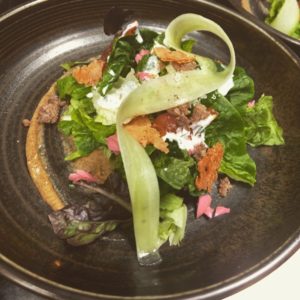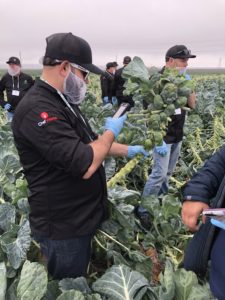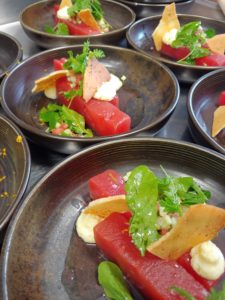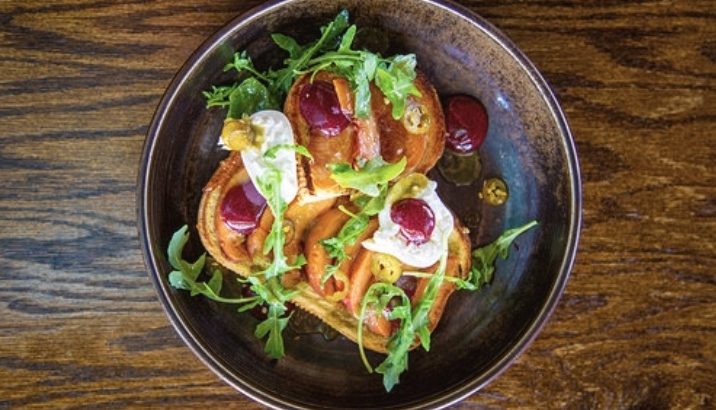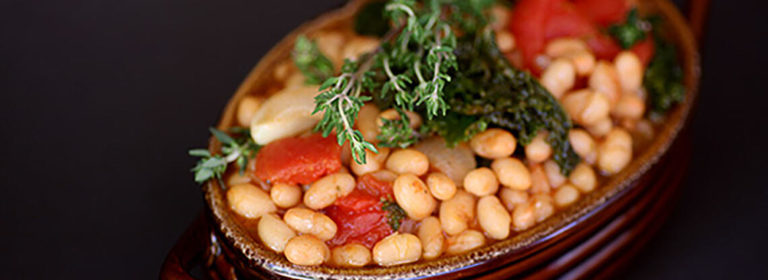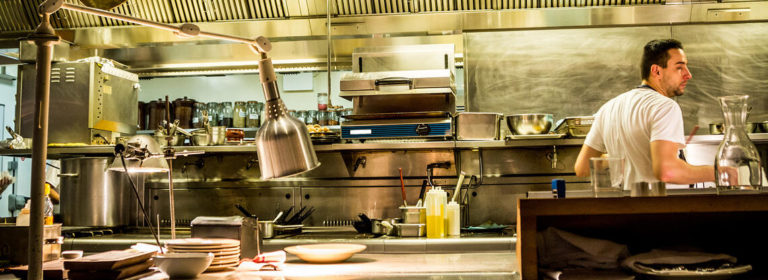When the globally focused eatery opened in 2018, the first menus featured more vegetable-centric dishes than he had ever offered in his previous restaurants.
Recent surges in meat prices have been attributed to the supply chain and economic fallout from the pandemic. In September, the USDA reported that year over year beef prices jumped 22%, pork increased by 9.8%, and chicken up by 7.2%. These dramatic hikes have forced many operators throughout the country to rethink their menus, with more vegetable-forward dishes at top of mind.
For Kyle Hash, Executive Chef at 28 North Gastropub in Melbourne, Florida, the challenge is welcome. When the globally focused eatery opened in 2018, the first menus featured more vegetable-centric dishes than he had ever offered in his previous restaurants.
His pan-fried Brussels sprouts – simply tossed in parmesan-peppercorn dressing and finished with toasted parmesan cheese – have always been a top seller, he says. They also opened the door for him to introduce additional vegetable dishes to customers, so with each menu, he adds more dishes that lean towards green.
“I believe people are embracing vegetable-forward dishes more because they’re getting something that’s a little bit more interesting than just steak and potatoes,” Hash asserts. “They’re being more open minded, and it’s actually working out in our favor. It’s allowing us to be more creative and not worry about ingredients sitting in the cooler for two weeks because no one ordered it.”
Part of Hash’s culinary inspiration comes from his trips to Markon supplier farms, which he has visited several times. His experiences include eating strawberries right off the bush, noshing on freshly picked produce in various dishes, and getting comprehensive tours of the Salinas Valley growing area.
“Markon has all these different supplier partners so close to each other … during the Markon Chef Summit we visited like four different farms… we saw strawberries, we saw Brussels sprouts, artichokes, and it was all within a short bus ride,” recalls Hash. “They’re able to keep the quality at such a high volume, and that was very impressive.”
The 180-seat 28 North Gastropub requires a high volume of produce, which means Markon is a perfect match, says Hash. Among produce he orders from the company includes carrots, cilantro, herbs, baby bok choy, chives, shredded lettuce blends, cole slaw blends, and, of course, the Ready-Set-Serve Brussels Sprout Halves.
“We go through probably 200 pounds of Brussels sprouts a week, so cutting them ourselves was a pain in the butt,” explains Hash. “The Ready-Set-Serve Brussels Sprout Halves are already split down the middle, so that saves us time. They all have that tight core, so you always get that nice chew, so they’re always crispy. The quality is unmatched.” In addition to Ready-Set-Serve produce, he continues, they use Markon First Crop whole fruits and vegetables.
Hash’s enthusiasm for produce has not gone unnoticed. In 2019, he was nominated for and won a United Fresh Produce Excellence in Food Service Award. That year, he also participated in a challenge created by the Mushroom Council and Markon in which chefs across the country put their spin on burgers blended with mushrooms. He didn’t win, but the contest pushed him to be more economically mindful. “It was a fun contest as a way to stretch burgers and make them a little bit more cost effective,” he says.
It also inspired Hash to experiment more with vegetables. For example, he created a daikon radish “scallop” – which he says tasted like a scallop with the help of dashi – as well as a beet and lentil burger.
Because Hash knows that some approaches to the vegetable-centric concept can be intimidating, he’s created two distinct programs that make it fun for customers. First, there’s the weekly “Gastro-Lingo” program, which is executed through social media and a blackboard inside the restaurant. His staff picks a culinary term each week and builds interactive activities around it. In the past, they’ve used terms like “umami,” “broccolini” and “char sui,” and offer illustrations and actual examples to educate customers.
“We use Gastro-Lingo as a way to sell dishes as well as teach people,” explains Hash. “Chefs want to be fancy and do all these great things, but if the expectation of the guest isn’t met, it doesn’t matter how good the dish is, they are not going to be happy. We want to make dishes more approachable so that their expectations match our reality.”
There’s also the highly anticipated “Gastro-palooza,” which had an impressive turnout in 2019, but was canceled in 2020 due to the pandemic. Hash expects the live music-focused event to have an even larger turnout when it returns in February 2022. Supported by Markon and Gordon Food Service, the festival also includes chef demos, local food vendors and purveyors, and a “Chopped”-style chef competition featuring local culinary talent.
Vegetables and especially Markon Produce, as always, are the stars of the show.
